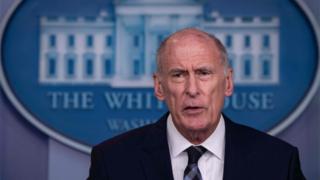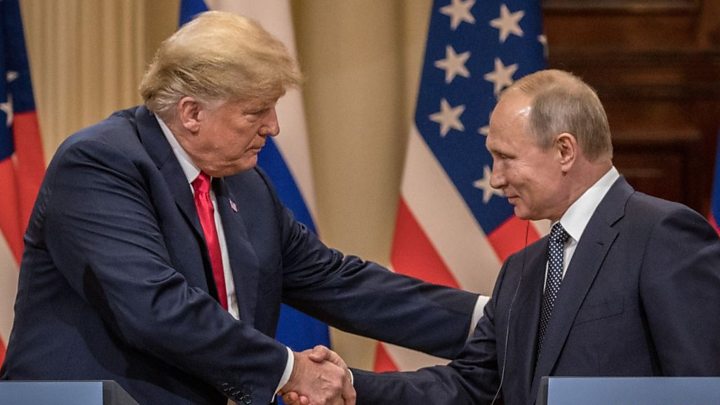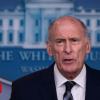 Image copyright Getty Images Image caption US Director of National Intelligence Dan Coats says officials are “taking nothing for granted” regarding election meddling.
Image copyright Getty Images Image caption US Director of National Intelligence Dan Coats says officials are “taking nothing for granted” regarding election meddling.
US President Donald Trump has signed an executive order authorising sanctions against any countries or individuals found interfering in US elections.
The order instructs the intelligence community to monitor and report on attempts to disrupt election infrastructure as well as propaganda.
The directive itself is not a sanction, but imposes bans or restrictions on suspected culprits.
Mr Trump has been criticised for his response to alleged Russian meddling.
There is some frustration among lawmakers that Mr Trump’s executive order could undercut congressional efforts to deter any election meddling in the US by foreign powers, according to CBS News.
At a press briefing following the executive order, National Security Adviser John Bolton said the move was “intended to be a very broad effort to prevent foreign manipulation” of US politics, US media reported.
National Intelligence Director Dan Coats said the directive was in response to alleged Kremlin interference in the 2016 presidential election.
It is understood that Russia is not mentioned by name in the text, but US officials named that country along with China, North Korea and Iran as most likely to try to sway US elections.
“We’re taking nothing for granted here,” Mr Coats said.
Fraught subject for White House
Analysis by Anthony Zurcher, BBC News, Washington
With under two months until the first national US elections since 2016, the Trump administration is outlining how it would respond to the kind of election meddling senior intelligence officials say could be coming.
The threatened sanctions are notable because they aim not just at foreign companies and individuals seeking to disrupt US electoral infrastructure – electoral databases, vote tabulation processes and the like – but also of propaganda campaigns and leaks of sensitive political information.
The US intelligence community has concluded that in 2016 Russian operatives were unable to accomplish the former, but resoundingly successful in the latter.
That this announcement came first as a leak to US news outlets and then as an announcement from National Security Advisor John Bolton underlines how fraught a subject it is for this particular White House.
Donald Trump has repeatedly downplayed the seriousness of the 2016 Russian cyber-warfare efforts, asserting that the allegations are largely a result of Democrats seeking to shift responsibility for his victory away from their own failings.
Now the intelligence community that the president has frequently belittled will have the power to respond to new assaults on the American democratic process. The question is whether the tools at its disposal will be an adequate deterrent.

Media captionThe ways Trump and Putin see eye to eye
US intelligence agencies concluded in 2016 that Russia was behind an effort to tip the scale of the US election against Hillary Clinton, with a state-authorised campaign of cyber-attacks and fake news stories planted on social media.
Russia has denied these accusations.
The president has drawn criticism for his response to Russian interference in the 2016 elections, particularly after he seemed to side with President Vladimir Putin during their Helsinki summit in July.
Amid serious backlash from both sides of the aisle, the Republican president later explained that he “misspoke” and said he had “great confidence” in US intelligence.
In June, the US slapped sanctions on several Russian companies and individuals for allegedly aiding Russia’s intelligence agency in cyber-attacks against the US.






